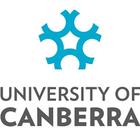Master of Secondary Teaching (EDM101.1)
- Posted by University of Canberra
- Home
- Courses
- University of Canberra
- Master of Secondary Teaching (EDM101.1)
Master of Secondary Teaching (EDM101.1)
Are you a passionate graduate whose keen to positively shape Australia’s young minds? UC’s two-year Master of Secondary Teaching will provide you with the knowledge and skills to pursue your passion and enter a career as a teacher of students in Years 7–12. With the delivery of the Australian Curriculum…
Categories
COURSE DESCRIPTION
Are you a passionate graduate whose keen to positively shape Australia’s young minds? UC’s two-year Master of Secondary Teaching will provide you with the knowledge and skills to pursue your passion and enter a career as a teacher of students in Years 7–12.
With the delivery of the Australian Curriculum in mind, discover pedagogical problem-based learning approaches within classroom and school settings and numerous ways to reflect upon your own professional learning objectives.
Informed by the latest research, this postgraduate course for pre-service teachers includes 60 days of professional experience within Canberra region secondary schools.
Like all Teacher Quality Institute (TQI) accredited education programs, UC’s Master of Secondary Teaching requires students to successfully complete a Professional Experience component and pass the moderated Teaching Performance Assessment (TPA) that takes place within a school.
Study the Master of Secondary Teaching at UC and you will:
master the skills required for lesson planning and effective teaching and learning
critically reflect on the ways in which educational theory and research informs teaching practice
develop effective ways to collaborate as part of a team and interpret evidence and data
increase your ability to reason and make evidence-based decisions
empower learners with your strong subject and pedagogical knowledge
establish and maintain ethical and respectful relationships with students, colleagues and parents
promote participation and inclusion and develop the strengths and needs of students from diverse cultural, linguistic, religious and socio-economic backgrounds
strengthen your professional leadership
engage with schools in the Canberra region and build your own network of experienced professional and mentors.
Career opportunities
A UC Master of Secondary Teaching degree is an accredited qualification and offers graduates the chance to acquire the skills needed to pursue a career in teaching and a pathway to a range of other lifelong learning careers.
Graduates can work in such roles as:
secondary school teacher
principal
relief teacher
adult educator
children’s author
curriculum adviser
flexible learning developer
professional trainer, coach or tutor
life coach or development executive
international school teacher
lecturer
education entrepreneur
foreign aid worker/educator
academia, including pedagogy researcher
policy design and implementation.
EDUCATIONAL INSTITUTION
Dynamic and vibrant, the University of Canberra (UC) is based in Canberra, the Australian capital. UC is a university for the professions, dedicated to providing immersive student experiences focused on employability outcomes. It is number one in the ACT for graduate employment and salaries for three years in a row (Good Universities Guide 2019-21), in the top one per cent of universities worldwide (The Times Higher Education World University Rankings 2021) and one of the fastest rising in the world (QS 2021). Its location and its regional connections shape the university’s purpose.
Dynamic and vibrant, the University of Canberra (UC) is based in Canberra, the Australian capital. UC is a university for the professions, dedicated to providing immersive student experiences focused on employability outcomes. It is number one in the ACT for graduate employment and salaries for three years in a row (Good Universities Guide 2019-21), in the top one per cent of universities worldwide (The Times Higher Education World University Rankings 2021) and one of the fastest rising in the world (QS 2021). Its location and its regional connections shape the university’s purpose.




